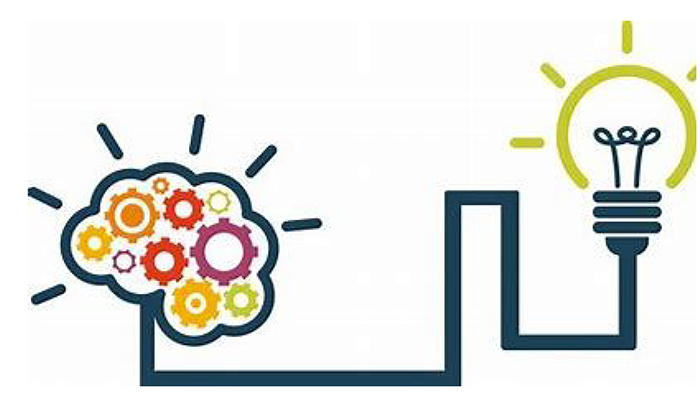Now that we are moving towards a post-COVID-19 world, you may be wondering what will change? What will stay the same?
I know I am.
In some respects, I know that COVID-19 has brought a wave of change that will continue. We have gone into increased Zoom/MS Teams meetings instead of in-person meetings, flexible access to health care providers using telehealth options, and maybe even more restaurants using a takeout/delivery model instead of in-person dining.
One thing is sure, the change will continue, and our organizations need to keep adapting to ensure their sustainability.
According to experts like Dan Jones, he believes that Lean will “mobilize creative contribution for everyone, including users, to develop different and sustainable systems for the future.”
I agree that adopting (or growing) a Lean mindset will drastically improve an organization’s chance of survival in a post-COVID world. Here are some of the core tenets of Lean that make it a viable model to survive and thrive going forward.
Start with the Customer
A Lean organization focuses on its customers first by understanding how they define value and assessing its key processes to continuously increase the value being provided (while relentlessly eliminating waste).
Most organizations have seen a significant shift in what their customers define as a value, such as contactless experiences, increased sanitization and cleaning, socially distanced venues, and virtual events.
Additionally, many organizations have acquired new customers with different needs and requirements than their traditional customer base. For example, there is a much broader audience using web-based audio/video conferencing tools, such as young children and senior citizens, who have different needs than traditional business or academic users.
Taking a Lean approach requires constant dialogue with customers to understand how their needs have changed, which creates a ‘north star’ for what to focus on. When people have a clear sense of the organization’s purpose (via mission, vision, and goals) and how they fit into that purpose and provide value to others, they are more engaged and committed.
Research also shows that the “money for few” system will no longer work and that organizations will have to be more forward-thinking and conscious about their impact on the environment and their workforce.
Those who thrived on the belief that businesses should focus solely on profit margins for shareholders may be a thing of the past. Because Lean begins with understanding value, which the customer defines (external and internal), and not on financial success, it provides a foundation for taking a broader perspective.
Scientific Problem Solving Approach

Lean also embraces scientific problem solving instead of reactionary or fire-fighting methods that address symptoms of issues versus root causes. While there are different frameworks such as PDCA or DMAIC, what remains constant is a repeatable and consistent method to define problems, describe the current state (magnitude of the problem), identify and narrow root causes, and implement solutions and ensure sustainment.
With these problem-solving frameworks, employees are asked to define and characterize performance gaps and discover and validate real root causes before they attempt to resolve them. Engagement and empowerment of those who perform the work, continuous dialogue between leaders and staff (front line), and a trial and learning mindset are integral to success. The use of scientific problem solving allows for deliberate learning on an individual and organizational level.
Employing a structured technique to problem-solving boosts critical thinking, enabling people to interpret, analyze, evaluate, explain, and find results in uncertain situations. Whether you are addressing continued challenges stemming from COVID-19, increasing value for customers, developing new products or services, or reducing costs, organizations have an even more vital need for critical thinking now and into the future.
Development of People

A genuinely Lean organization sees it as more than a management approach to improve processes, reduce waste, or reduce costs—but as a way of developing people. For decades, Toyota, best known for driving a robust continuous improvement culture, includes developing exceptional people as one of their core values.
For many, people development translates to training, a shortsighted view of building peoples’ skills. In comparison, Lean incorporates the use of analytical tools and techniques, best learned by doing – which occurs through improvement activities (kaizen) in their work areas.
Additionally, experienced practitioners serve as coaches to others’ to expand and apply the skills, knowledge, and abilities of those with less experience. A critical element is learning through self-discovery and inquiry versus being directed towards a solution.
Ultimately, Lean promotes a new way of thinking about how work gets done, how problems are addressed, and how value is provided to the customer.
Over time, people in a Lean environment grow and hone their problem-solving skills, which are then transferable to other functional areas. This development provides advancement opportunities for people to take on different roles and increase their value in an organization.
Growing as a Lean practitioner also has a broader impact on one’s leadership, planning, change management, facilitation, communication, project management, and teaching/coaching skills. These skills benefit the organization by building a pipeline of critical thinkers, problem solvers, and continuous learners.
Lean provides a holistic framework to:
- Stay in tune with customer and stakeholders’ needs
- Clarify how value is created
- Solve problems systematically
- Create flexible and agile processes
- Develop people
As organizations consider embracing the new, reviewing or revising the old to sustain in a post-COVID environment, having a Lean strategy in place equips you for the continuous change and uncertainty that lies ahead.
Explore our suite of workshops to help build your peoples’ competencies to drive transformation (all of our workshops can be delivered virtually).
Or, if you need an expert to guide you through improvement efforts, consider our virtual project coaching and virtual project leadership support.
RESOURCES
How will lean shape the post-Covid World? — Lean Enterprise Academy (leanuk.org)
Lean thinking and the world after Covid-19 — Planet Lean (planet-lean.com)
The Toyota Way to Continuous Improvement—Jeffrey K. Liker, James K. Franz
